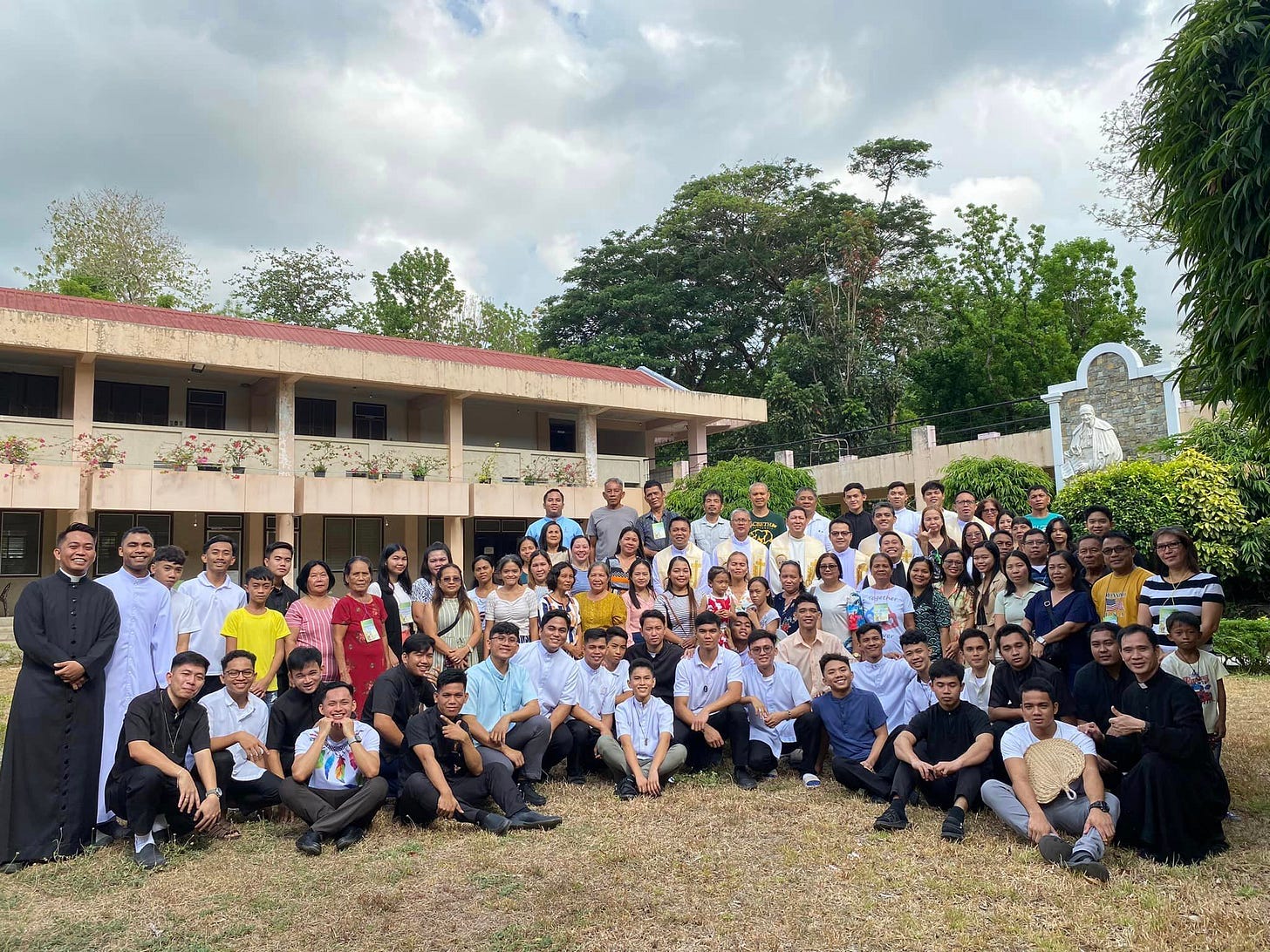Family Environment and Priestly and Religious Vocation

Family environment is decisive in every person’s life. The quality of the family environment determines the quality of our future, and if not given enough attention, will surely affect the individual, then the community, church, and the world. Human persons are dynamic and complex. Within us lie layers of stories and histories that need to be unraveled – narratives that help us understand ourselves and be understood by others as well. Family environment affects, influences, and molds every dimension of the human person. It shapes one’s cognitive capacity, personality, emotional schema, patterns, and dynamics of every individual. And so, our way of thinking, feeling, behaving, relating, and the quality of commitment to our duties and responsibilities are reflections of our acquired environment.
We are at odds with different and new challenges now. Our milieu is in constant change and challenged by numerous and fast-paced situations, both adverse and positive. While the world rejoices on the countless innovations and progress, in technology for example, on the other side of the world, beyond our worldly eyes, are increasing situations that pose danger to the family environment - negligence, separation, divorce, abortion, materialism, substance abuse, and many others. These new situations overwhelm the family environment, becoming, in fact, detrimental both now and in the future. It is imperative that appropriate interventions and effective solutions be embraced for us to achieve and hope for a better future.
Clerics and consecrated are not exempt from these new and overwhelming currents. The church notices the difficulties nowadays in responding to God’s call to priestly and religious life, and at the same time, living in fidelity to its identity. This struggle is felt quite deeply in priestly ministry, for example, in establishing appropriate relationships with others, especially with women and children, issues on materialism, and the capacity to observe religiously the vow of chastity. Almost every day, news about scandals done by some of the consecrated men and women confront us. These situations lead the faithful, most of the time, to question the fidelity of those who promised to follow the Lord - chaste, poor, and obedient to the Father. The struggle of sequela Christi grows ever more daunting today.
Priestly formation is tedious; it is a lifetime endeavor. And despite many formative interventions, especially in the field of intellectual formation, still, the crisis in priestly life and ministry remains persistent and overwhelming. The church has made several approaches to confront this issue, but the underlying problem, especially the family environment, needs to be explored more. Throughout centuries, it has been thought, without question, that clerics must be prepared intellectually. From initial formation to further studies, clerics enjoy an open opportunity to widen their knowledge and hone their expertise. And yet, the church has also long wondered that despite these efforts, problems, issues, and scandals continue to haunt several of her ministers, seriously struggling with the ‘sequela Christi.’ It only means that intellectual formation, though necessary, is never enough. It does not solve the problem that envelops the church currently. Today, priestly life and formation are urged to delve at the heart of the matter and recognize the magnitude of family environments in the contextualization of formation. It must be dealt with utmost seriousness, traversing its delicate sphere, and managing its different constellations.
The priest's effectiveness depends likewise on his affective maturity - a byproduct of integral formation, especially in the aspect of family environment. If the family environment remains unreconciled, haunted by hostile past experiences, then the same brokenness, hurts, and pain will be passed on in the ministerial life of the ordained. These unreconciled issues cast shadows on the evangelical credibility of the priests and religious, affecting, in one way or another, the trust that God’s people offer to the consecrated life.
The Dicastery for Institutes of Consecrated Life and Societies of Apostolic Life has long been challenged by these pressing issues. It has since provided valuable interventions to help the consecrated in their journey of fidelity and perseverance. The church is crying for healing for the continuous “wounding” that she experiences here and now caused by her own priest-ministers. But the journey toward healing can only be possible if the root causes are addressed, one of which is the reconciliation with the family environment. Formation has now become a challenge to address the family issues of the aspirants in the priestly and religious life. It is asked to come up with effective ways to accompany their families for when both parties are addressed, healing becomes authentic and integrated.
- - Fr. Rogie Quinga, RCJ currently resides at the Oasis of Prayer in Silang, Cavite. Aside from managing the Enterprises of the St. Matthew Province, he also spend his time helping priests, religious, and those in formation in their psycho-spiritual journey.


